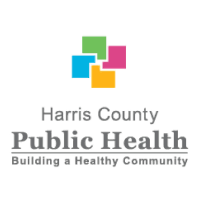 February is American Heart Month – How’s Your Heart?
February is American Heart Month – How’s Your Heart?
Heart disease is the leading cause of death in Harris County and the rest of the country. In 2020, about one in every five deaths were attributed to heart disease in the United States. Fortunately, there are many ways to reduce the risk of heart disease. February is American Hearth Month and Harris County Public Health (HCPH) joins forces with agencies across the country to remind residents about the importance of taking care of their hearts.
What is heart disease?
The term “heart disease” refers to several types of heart conditions. The most common type of heart disease in the United States is coronary artery disease (CAD), which affects the blood flow to the heart. Decreased blood flow can cause a heart attack.
What are the symptoms of heart disease?
Sometimes heart disease may be “silent” and undiagnosed until a person experiences signs or symptoms of a heart attack, heart failure, or an arrhythmia. When these events happen, symptoms may include:
- Heart attack: Chest pain or discomfort, upper back or neck pain, indigestion, heartburn, nausea or vomiting, extreme fatigue, left arm pain, dizziness, and shortness of breath.
- Arrhythmia: Fluttering feelings in the chest (palpitations).
- Heart failure: Shortness of breath, fatigue, or swelling of the feet, ankles, legs, abdomen, or neck veins.
What puts people at risk for heart disease?
Key factors for heart disease are high blood pressure, high cholesterol, and smoking. Several other medical conditions and lifestyle choices can also put people at a higher risk for heart disease, including:
Making healthy choices not only helps your heart but also improves your overall health. Living a healthy lifestyle can help keep your blood pressure, cholesterol, and blood sugar levels normal and lower your risk for heart disease and heart attack.
Below are a few examples of maintaining a healthy lifestyle:
- Eat healthy– Choose healthy meals and snacks to help prevent heart disease and its complications. Be sure to eat plenty of fresh fruits and vegetables and fewer processed foods.
- Keep a healthy weight– Carrying extra weight on the body can put extra stress on the heart and blood vessels.
- Exercise regularly– Physical activity can help you maintain a healthy weight and lower your blood pressure, blood cholesterol, and blood sugar levels.
- Don’t smoke– Cigarette smoking greatly increases your risk for heart disease. If you don’t smoke, don’t start. If you do smoke, quitting will lower your risk for heart disease.
- Limit your alcohol intake– Excessive drinking increases your risk of heart disease.
- Get regular medical checkups– Regular checkups are separate from any other doctor’s visits for sickness or injury. These visits focus on screening for early signs of disease and addressing any possible problems.
To learn more about how to reduce your risk of heart disease and available resources, please visit hcphtx.org or cdc.gov.

